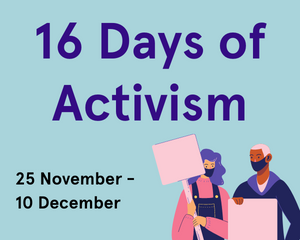Gender stereotypes are generalisations about women and men. Gender stereotypes reflect and reinforce the ideas that women and girls, men and boys:
- should act in certain ways
- should look certain ways.
- are better suited to particular roles in society.
Gender stereotypes shape and limit children from a very young age.
Check out two of the following items. Reflect on the effects of gender stereotypes on children, and what we can do to challenge them:
- Watch this video to understand the effects on boys and young men.
- Reflect on this video. It shows how adults can reinforce gender stereotypes to young children without necessarily meaning to.
- Check out this video of primary school children doing a creative drawing activity. Reflect on how gender stereotypes can limit children’s ambitions, and the way they see the world and their place in it.
Gender stereotypes affect everyone, but they are particularly harmful for girls and women. We live in a society that values characteristics associated with men more than characteristics associated with women. Gender stereotypes support gender inequality by creating different statuses for boys and girls.
How does it help?
Gender stereotypes play a key role in producing gender inequality. Gender inequality is the most consistent predictor of violence against women (Our Watch).
Research shows that ‘levels of violence against women are significantly and consistently higher in societies, communities and relationships where there are more rigid distinctions between the roles of men and women’.
It also reveals that ‘men who hold traditional, hierarchical views about gender roles and relationships are more likely to perpetrate violence against women’ (Our Watch).
According to Our Watch, preventing violence against women requires:
- encouraging positive personal identities
- challenging gender stereotypes and roles.
Gender stereotyping affects the hopes and ambitions of children, and how they see themselves. Gender stereotypes can prevent children from:
- exploring their interests
- developing their talents
- reaching their potential.
Keep going!
- Avoid gender stereotyping when you are with children and young adults. This list provides some tips.
- The Level Playground website provides caregivers and educators with information and resources to raise children free from gender stereotyping.
- Browse this guide for children’s picture books that promote gender equality and challenge gender stereotypes.
Learn more
- Did you know that pink was once considered a masculine colour? Read this article to find out more.
- In this video, Elizabeth Sweet discusses her research on the effects of gender stereotypical toys on boys and girls. Take some time to reflect on the possible consequences of this blue versus pink world of toys.
Please note that these clips/articles contain information regarding the topics of sexism, gender inequality and violence against women. If you find the information distressing, please click through for information and support on self care. If you or someone you know is experiencing violence, please visit the our help section for further information and support.
